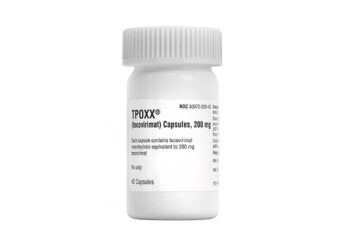TOPLINE:
Compared with placebo, low-dose methotrexate administered weekly at doses up to 15 mg for 52 weeks did not relieve knee pain or reduce the size of effusion-synovitis in patients with inflammatory knee osteoarthritis (OA).
METHODOLOGY:
- Researchers in China conducted a multicenter, clinical trial between July 2019 and January 2023 to examine whether low-dose methotrexate can reduce knee pain and effusion-synovitis in knee OA.
- They included 215 patients (mean age, 60.6 years; 89% women) with inflammatory knee OA and effusion-synovitis who were randomly assigned to receive either methotrexate or placebo, with weekly 5 mg folic acid supplementation given 1 day after treatment.
- Participants continued their regular medications (except corticosteroids and anti-synovitis drugs), did not take trimethoprim, and avoided alcohol during the trial.
- Primary outcomes were changes in knee pain on the visual analog scale (VAS) and inflammation measured by the effusion-synovitis maximal area on MRI over 52 weeks.
- Secondary outcomes were assessment of pain, stiffness, and physical function; changes in infrapatellar fat pad signal intensity; and evaluation of response to the assigned treatment.
TAKEAWAY:
- At week 52, no significant difference was found between methotrexate and placebo groups in terms of VAS pain and effusion-synovitis maximal area (between-group difference, 0.3 mm; 95% CI, -6.7 to 7.3 mm and 0.1 cm2; 95% CI, -0.8 to 1.0 cm2, respectively).
- No significant differences were observed between the two groups in terms of any of the prespecified secondary outcomes.
- The frequency of experiencing at least one adverse event was comparable between the methotrexate and placebo groups (29.6% and 24.3%, respectively); however, elevated concentrations of liver enzymes were more common in the methotrexate group.
IN PRACTICE:
“Given the lack of efficacy of MTX [methotrexate] across knee OA studies and the known potential adverse events, it is not recommended for the treatment of painful, inflammatory knee OA. We now need to focus our attention on treatments that can both inhibit joint inflammation and stimulate chondrocytes within the cartilage to synthesize replacement matrix. The future of pharmaceuticals for knee OA needs to move past MTX,” Nancy E. Lane, MD, UC Davis Health, Sacramento, California, wrote in an accompanying editorial.
SOURCE:
This study was led by Zhaohua Zhu, PhD, Zhujiang Hospital, Southern Medical University, Guangzhou, China. It was published online on June 2, 2025, in JAMA Internal Medicine.
LIMITATIONS:
This study was conducted during COVID-19 shutdowns, which delayed recruitment and potentially increased loss to follow-up and nonadherence rates. The findings may not be fully generalizable because most participants were women, and racial and ethnic diversity was limited. The relatively small number of participants in each subgroup may have limited the ability to detect significant benefits in specific populations.
DISCLOSURES:
This study received funding from the National Key Research and Development Program of China, the National Natural Science Foundation of China, and the Clinical Research Startup Program of Southern Medical University. One author reported providing consulting advice on scientific advisory boards for various pharmaceutical companies outside the submitted work.
This article was created using several editorial tools, including AI, as part of the process. Human editors reviewed this content before publication.
Source link : https://www.medscape.com/viewarticle/year-long-methotrexate-not-helpful-inflammatory-knee-oa-2025a1000fae?src=rss
Author :
Publish date : 2025-06-06 10:16:00
Copyright for syndicated content belongs to the linked Source.














